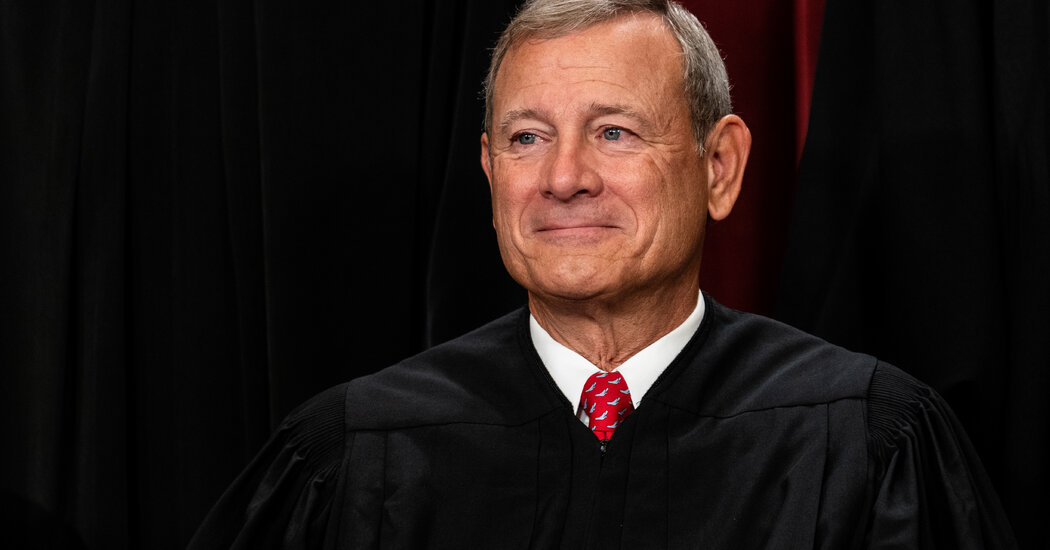WASHINGTON — Chief Justice John G. Roberts Jr. was invited on Thursday to appear before the Senate Judiciary Committee next month to discuss ethics ru
WASHINGTON — Chief Justice John G. Roberts Jr. was invited on Thursday to appear before the Senate Judiciary Committee next month to discuss ethics rules applying to the Supreme Court after disclosures of unreported luxury travel and real estate deals between Justice Clarence Thomas and a wealthy Republican donor.
Senator Richard J. Durbin of Illinois, the No. 2 Senate Democrat and the chairman of the committee, sent a letter to the chief justice, asking him to consider testifying before the panel on May 2 regarding potential changes to the rules. Mr. Durbin noted that the last time the chief justice publicly addressed ethics rules was in a 2011 year-end report.
“Since then there has been a steady stream of revelations regarding justices falling short of the ethical standards expected of other federal judges and, indeed, of public servants generally,” the letter said. “These problems were already apparent back in 2011, and the court’s decade-long failure to address them has contributed to a crisis of public confidence. The status quo is no longer tenable.”
Mr. Durbin said he would ensure that the questioning by the panel was limited to ethics issues and did not veer into other activities of the court. He also said the chief justice could designate another justice to appear.
The Supreme Court did not immediately respond to a request for comment.
Reports by ProPublica of financial ties between Justice Thomas and Harlan Crow, a billionaire supporter of the Republican Party, have intensified longstanding calls in Congress for the justices to impose new ethics requirements on themselves that would at minimum subject them to the same rules as the rest of the federal judiciary.
Mr. Durbin and other Democrats have threatened action by Congress if the court refuses to police itself. But they have also made it clear that they would prefer for the chief justice to act to avoid thorny separation-of-powers issues and a fight with Republicans over the court and its funding, which Congress controls.
The invitation appeared to be part of an effort to step up pressure on the chief justice to impose new rules, with little expectation that he would take Mr. Durbin up on his offer.
Senator Chris Coons, Democrat of Delaware and a member of the committee, said that the failure of the court to adopt new standards would set up an expectation that Congress might try to force rules on the court.
“What would be preferable in my view is for the justices of the court to realize that it is long past time to submit themselves to exactly the same ethics regulations that cover every other federal judge,” Mr. Coons said.
Republicans attacked the Democratic attempt to bring the chief justice before the panel, saying it was part of a coordinated political assault on Justice Thomas.
“I don’t believe the Democrats have any interest in an objective or fair discussion,” said Senator Ted Cruz, Republican of Texas and another member of the committee.
“This is all about a political smear job directed at Justice Thomas because Senate Democrats loathe Justice Thomas,” said Mr. Cruz, who said he expected Democrats to “perform for the cameras” if the chief justice appeared. “They disagree with his jurisprudence.”
Senator Lindsey Graham of South Carolina, the senior Republican on the Judiciary Committee, said he feared that bringing Chief Justice Roberts before the panel would open a “Pandora’s box.”
“Let him deal with the situation in his own backyard,” said Mr. Graham, adding: “I would be surprised if he agreed to come. And I would support his decision not to come if that’s what he wanted to do.”
In his letter, Mr. Durbin noted that there was precedent for sitting justices testifying on ethics before the Senate, reminding the chief justice of an October 2011 session that included “robust exchanges” about ethics and the court.
“The time has come for a new public conversation on ways to restore confidence in the court’s ethical standards,” he wrote.
www.nytimes.com
